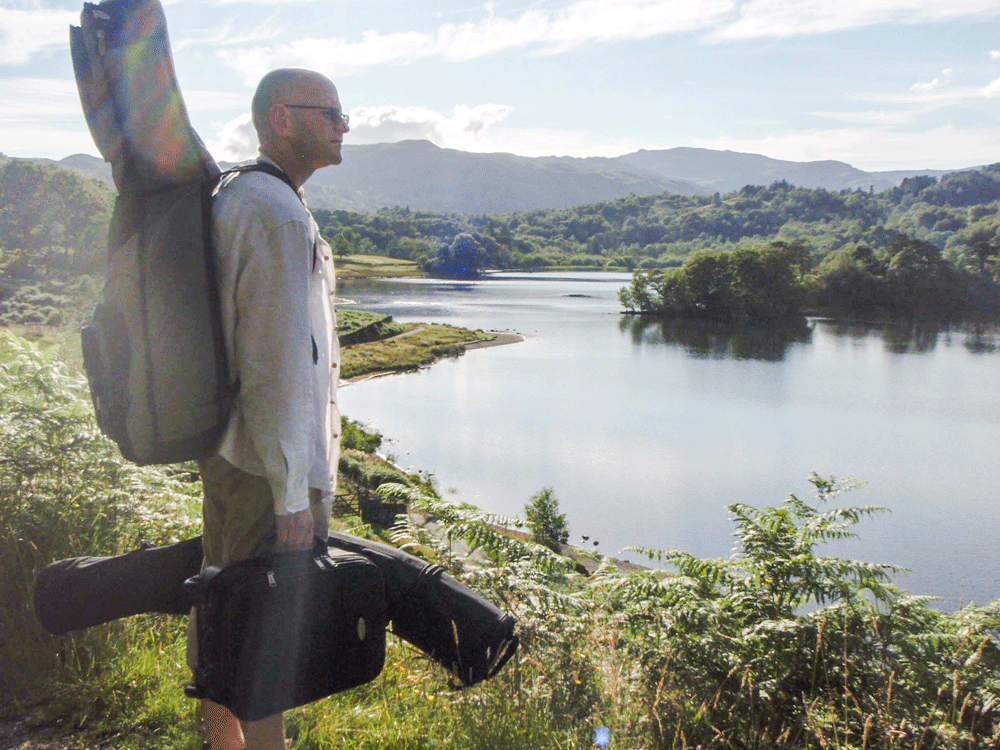Thoughts from São Paulo
/This week, I’ve been in Brazil on a week’s residency with Mouthful, working toward a collaborative performance at Museu de Arte de São Paulo (MASP) with the youth choir of Guri Santa Marcelina, an inspirational music organization based in the city. We’ve been joined for the week by Rico, Jan and Marcela (and also Pablo for some of the week) from the People’s Palace Projects (PPP) in Rio, whose work with homeless people has introduced another depth to our residency, bringing the real value of music more sharply into focus, and inviting all of us to think more deeply about why we do what we do.
All of the PPP delegation are a genuinely inspirational bunch: articulate, funny, passionate and committed. And yet two of their number, Rico and Marcela, have as little English as I have Portuguese, making conventional dialogue a bit redundant, and ultimately strained. For me, it’s only been last night, when we’ve all sat around in our hotel bar with a guitar - and more caiprinhas than a medical doctor would consider to fall within the boundaries of common sense - that we’ve finally been able to communicate more clearly with each other. Radiohead songs (Pablo Honey era of course), Queen mash-ups and traditional Brazilian popular songs, alongside our own compositions have been the currency. Through this musical sharing and collaboration, we’ve all been given an insight into each other’s internal emotional lives, building a strong sense of intimacy and trust. As we add harmonies and rhythms to each other’s songs, we acknowledge the truths that are being shared, and validate them. As Stephen Mithen suggests (Mithen 2007, pp.47–50), music is a means of communicating emotions, especially when our means of communicating information falls short.
This simple truth about music is powerful. Reflecting on some of the dialogue that has gone on this week, it strengthens my belief that, for those deprived of what we might think of as basic human rights, group music-making can be a powerful act of what Ranciere might call ‘dissensus’ - a way of enacting some of those same rights which the nature of their relationship with society deprives them of. As well as the more obvious human right ‘freely to participate in the cultural life of the community, to enjoy the arts’ (United Nations 1948), participation in active music-making can also be a way of enacting human rights which individuals or groups of people might be otherwise deprived of, including the right to be ‘free and equal in dignity’, to experience a ‘spirit of brotherhood’, to be part of a ‘family’, and to enjoy ‘rest and leisure’ (ibid).
One might say that making music together - as something our species has done for the 60,000 or so years of our shared history (Mithen 2007; Dunbar 2012) – is one of the things that defines us as humans. Especially when other human rights are eroded, group music-making enables us to literally ‘sing the rights we do not possess’ (Camlin 2017) by participating in those rights simultaneously denied to us. In a choir, each voice contributes to the group sound and is therefore important. Each voice also needs to be balanced in relation to all the other voices – in volume, tone and articulation - in order to make a good collective sound. In this way, group singing can become an act of dissensus, a way of enacting those human rights outlined above which may be denied in everyday life.
The work that Rico, Jan and Marcela do is vital because even though a homeless person’s daily experience may exclude a sense of belonging to a collective whole (society) - which is fundamental to wellbeing and enshrined as a human right - in a choir such a sense of belonging can be realised. Group singing literally enables those participating in it to move closer to their ‘ontological and historical vocation to be more fully human.’ (Freire 1970, p.37)
As our residency at Guri draws to its conclusion, I’m reminded of what the real potency of music is; the deep interpersonal connections which music-making facilitates are truly emancipatory. The concert this afternoon is sure to be amazing and powerful, but will be even more so because of the human relationships which have been fostered and nurtured this week through our making music together.
References
Camlin, D.A. (2017). Singing The Rights We Do Not Possess. In: Community Music: beitrage zur Theorie und Praxis aus internationaler und desutshcer Perspektive. Munich: Waxmann, pp. 137–148.
Dunbar, R. (2012). On the Evolutionary Function of Song and Dance. In: N. Bannon (ed.). Music, Language and Human Evolution. OUP Oxford, pp. 201–214.
Freire, P. (1970). Pedagogy of the Oppressed. 2Rev Ed. London: Penguin.
Mithen, S. (2007). The Singing Neanderthals: The Origins of Music, Language, Mind, and Body. Harvard University Press.
United Nations (1948). Universal Declaration of Human Rights. [Online]. 1948. Available from: http://www.un.org/en/universal-declaration-human-rights/. [Accessed: 20 April 2017].
